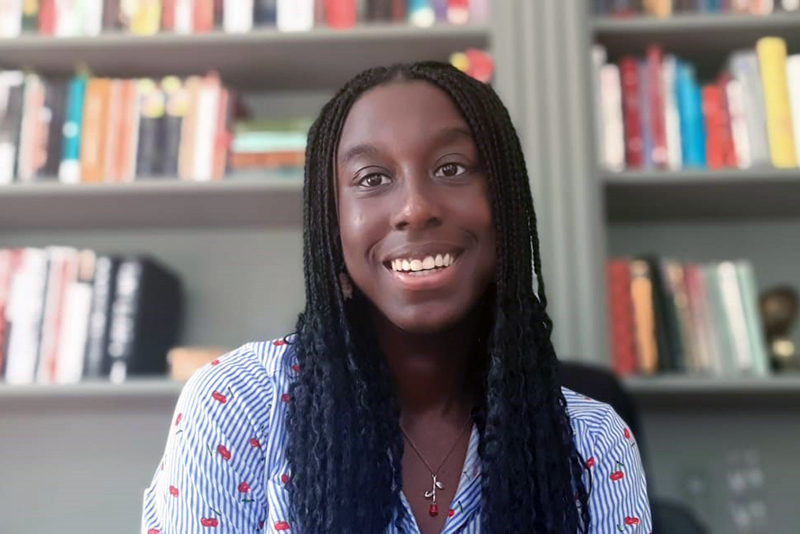Wycombe Abbey Sixth Former wins Literary Competition with Emotive Blog about a Refugee
21 June 2021 - Academic

The Chalfont St Giles Literary Competition encourages young people to creatively reflect upon a range of historical and social issues and share their works with the wider community. Every aspect of creativity is celebrated, with art, poetry, literature and cinematography all being discussed and explored. As I’ve always loved writing, I decided to participate in 2020 where one question particularly stood out: ‘The Mayflower sailed to America 400 years ago, taking the Pilgrim Fathers who were escaping persecution. Today, asylum seekers are leaving the Middle East to try and make a new life in Europe. Imagine you are escaping from persecution and write a blog about your escape’. For several months, the competition was somewhat put aside, due to the pandemic and I’d half-forgotten all about it until my prize was popped through the letterbox recently – a lovely reminder!
The nature of the question encouraged us, as writers, to step into the shoes of refugees and reflect upon the brutal reality of their journey, one that encompassed both physical and emotional pressures. As part of my writing process, I spent time reading testimonies on social media and beyond, consulting charitable mission statements and articles in an attempt to glean a glimmer of insight into the most tumultuous journey. In literature, when we think about heroic journeys and overcoming adversity, perhaps what first springs to mind is that of Achilles or Hercules, but there is also true heroism in the courage it takes to leave behind everything that is familiar, to learn a new language and immerse yourself in a new culture that is invariably foreign and often hostile. Recognising the immense bravery of these people, and exploring the human aspect of their journey, was a cornerstone of my writing. Additionally, the ‘blog’ aspect of the question was hugely engaging, it’s hard to imagine such an arduous journey being condensed into 280 characters in a Tweet or something as seemingly mundane as an Instagram infographic, but social media proved to be an excellent insight into the fears, aspirations and reflections of people who had made said journey. These firsthand reports were fascinating in their own right and helped me bridge the gap of fictionalising a journey that is so real for so many people. I decided to write from the perspective of a young woman, juggling all the typical challenges of any teenage girl but compounded by this life-threatening political backdrop and an impossible journey stretching before her.
I was truly honoured to have won the award and been able to share my writing with the panel and larger festival community. I’ve always believed that writing connects us, and strangely, during the midst of the pandemic when the world felt so disconnected (and not just because of the social distancing), learning more about this marginalised cohort of people, reading and empathising with their stories about dinghies and camps made me feel more connected to the wider world than I had for several months.
Izzy, UVI